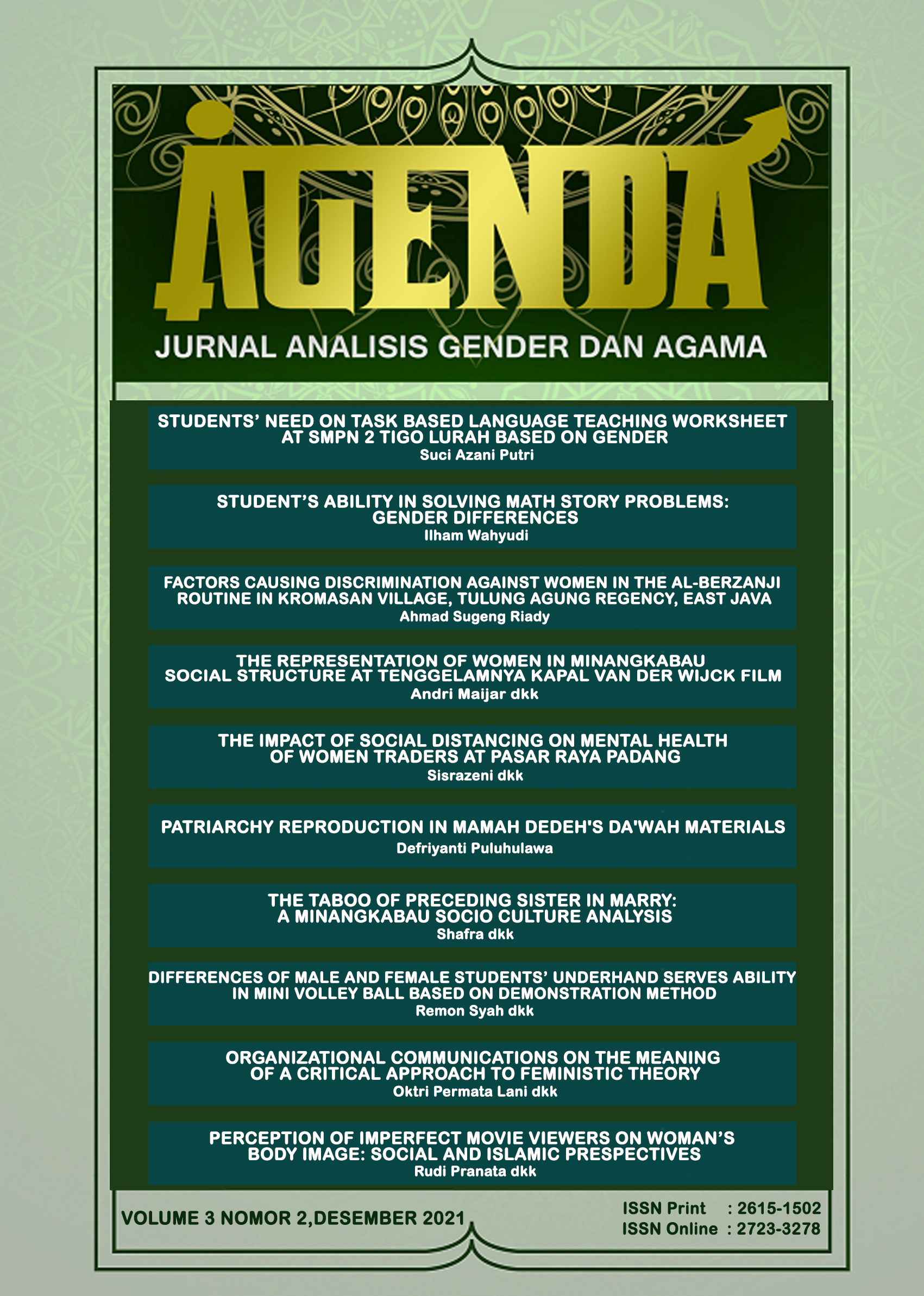Sharpening Early Digital Literacy Skills as a Long-Term Investment for Young Children
DOI:
https://doi.org/10.31958/agenda.v5i1.9355Keywords:
Literasi digital, Pendidikan anak usia diniAbstract
AbstractIn today's rapidly advancing digital era, the ability to master technology has become crucial for everyone. Nearly all activities can be carried out using technology, especially digital technology that is accessible by anyone, anytime, and anywhere, from adults to young children. However, it's important to note that young children, who are in a crucial stage of growth and development, are highly susceptible to environmental influences, including digital technology which is now easily accessible to them, often with parental permission to use gadgets. Therefore, this is a significant concern because in the age range of 0-6 years, a child's brain development progresses rapidly, reaching up to 80%, allowing their brains to easily absorb various information, both positive and negative.
This period is often referred to as the "golden age," which requires close supervision from adults regarding the use of digital technology by young children. Strict supervision is necessary because digital technology can grant unrestricted access to young children, including access to negative content such as pornography and violent games, which can adversely impact their morals and development. Conversely, with proper guidance and supervision, the use of digital technology can offer numerous benefits to young children, such as enhancing their creativity and insights, as well as helping them explore talents and interests in the digital realm.  Therefore, the author is interested in identifying and describing the digital literacy skills of young children as a long-term investment
References
Naufal, H. A. (2021). Literasi digital. Perspektif, 1(2), 195-202.
Pratiwi, N., & Pritanova, N. (2017). Pengaruh literasi digital terhadap psikologis anak dan remaja. Semantik, 6(1), 11-24.
Kurnia, N., Wendratama, E., Adiputra, W. M., & Poerwaningtias, I. (2019). Literasi digital keluarga: Teori dan praktik pendampingan orangtua terhadap anak dalam berinternet.UGM PRESS.
Rizkiyah, P. (2022). Pengembangan Buku Cerita Bergambar Berbasis Digital Untuk Meningkatkan Kecakapan Literasi Digital Anak Usia Dini. Indonesian Journal of Early Childhood: Jurnal Dunia Anak Usia Dini, 4(1), 115-133.
Kurnianingsih, I., Rosini, R., & Ismayati, N. (2017). Upaya Peningkatan Kemampuan Literasi Digital Bagi Tenaga Perpustakaan Sekolah dan Guru di Wilayah Jakarta Pusat Melalui Pelatihan Literasi Informasi. Jurnal Pengabdian Kepada Masyarakat (Indonesian Journal of Community Engagement), 3(1), 61.
Gilster, P. (1997). Digital literacy. Wiley Computer Pub.
Caniago, Junita Kahirani. 2013. Literasi Media dan Literasi Digital.
Nurrachmawati. (2014). Pengaruh sistem operasi mobile android pada anak usia dini. Jurnal Pengaruh Sistem Operasi Mobile Android Pada Anak Usia Dini. Makassar, FT, Universitas Hasanuddin.
Salehudin, M. (2020). Literasi Digital Media Sosial Youtube Anak Usia Dini. Jurnal Ilmiah Potensia, 5(2), 106–115.
Hasugian, J. (2018). Urgensi literasi informasi dalam kurikulum berbasis kompetensi di perguruan tinggi. Pustaha, 4(2), 34–44.
McDougall, J., Readman, M., & Wilkinson, P. (2018). The uses of (digital) literacy. Learning, Media and Technology.
Gilster, P., & Watson, T. (1997). An Excerpt from Digital Literacy. Digital Literacy.
Downloads
Published
Issue
Section
License
Copyright (c) 2023 Nur Amalina

This work is licensed under a Creative Commons Attribution-NonCommercial 4.0 International License.
Authors who publish with this journal agree to the following terms:
- Authors retain copyright and grant the journal right of first publication with the work simultaneously licensed under a?áCreative Commons Attribution-NonCommercial 4.0 International License?á(CC BY-NC 4.0) that allows others to share the work with an acknowledgment of the work's authorship and initial publication in this journal.
- Authors are able to enter into separate, additional contractual arrangements for the non-exclusive distribution of the journal's published version of the work (e.g., post it to an institutional repository or publish it in a book), with an acknowledgment of its initial publication in this journal.
- Authors are permitted and encouraged to post their work online (e.g., in institutional repositories or on their website) prior to and during the submission process, as it can lead to productive exchanges, as well as earlier and greater citation of published work (See?áThe Effect of Open Access).








